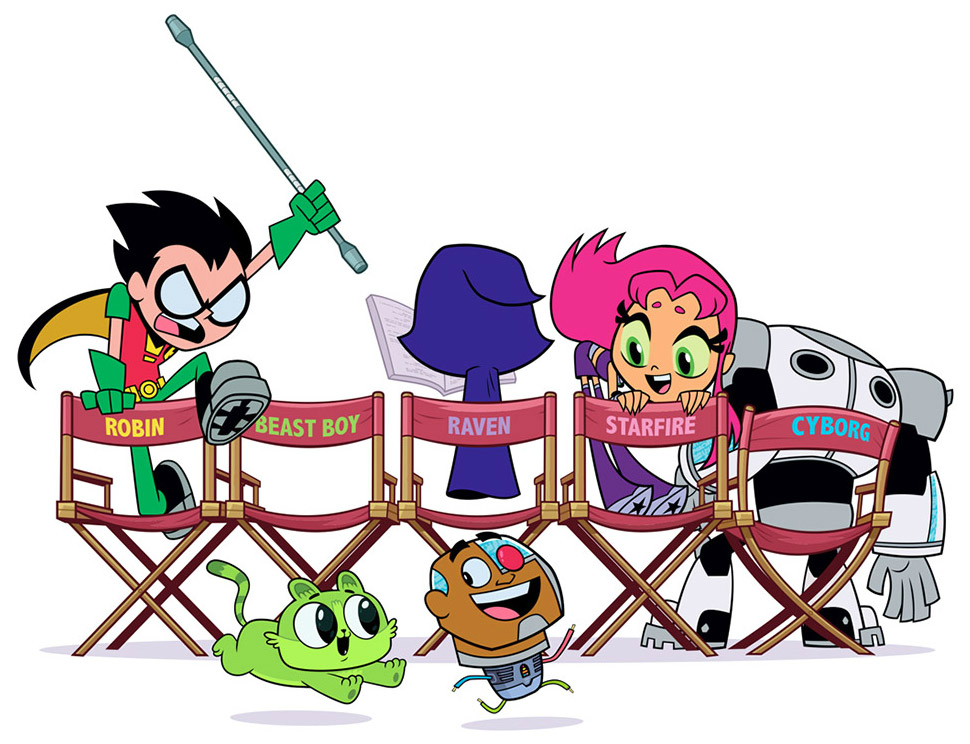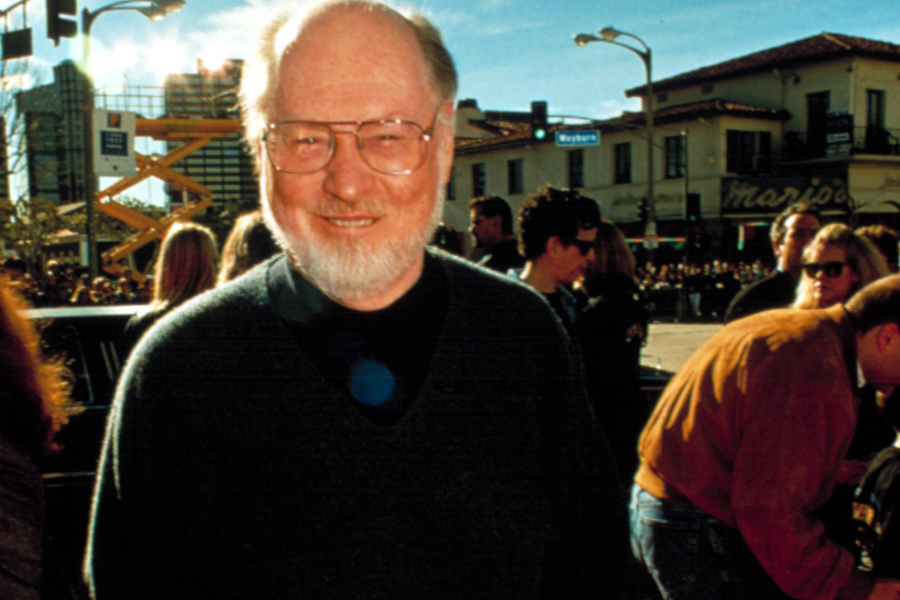Facebook Rolls Out New Plan For News Feed: More Posts From Friends And Family

Facebook CEO Mark Zuckerberg laughs as he meets with a group of entrepreneurs and innovators during a roundtable discussion at Cortex Innovation Community technology hub, in November, in St. Louis.
Jeff Roberson/AP
hide caption
toggle caption
Jeff Roberson/AP
Facebook CEO Mark Zuckerberg announced Thursday that the social media giant would begin emphasizing more “meaningful” content on users’ feeds – giving greater weight to posts from friends and family and less to businesses, brands and media.
In a long Facebook post of his own, Zuckerberg stressed that the social media platform — which has more than two billion active users worldwide — was created “to help people stay connected and bring us closer together with the people that matter to us.”
While the move was anticipated, Thursday’s announcement filled in more of the details.
“The research shows that when we use social media to connect with people we care about, it can be good for our well-being. We can feel more connected and less lonely, and that correlates with long term measures of happiness and health,” Zuckerberg wrote. “On the other hand, passively reading articles or watching videos — even if they’re entertaining or informative — may not be as good.”
The changes come as the company has faced increased criticism for the way its algorithms have allowed the spread of targeted disinformation aimed at disrupting U.S. elections, as well as more general criticisms that over-use of social media can contribute to depression.
Zuckerberg writes that he’s directed the company’s product teams to shift “from focusing on helping you find relevant content to helping you have more meaningful social interactions.”
As Wired notes, “The upshot: The newsfeed algorithm will now give less weight to the popularity of posts and more weight to posts that encourage users to interact and comment. One of the big criticisms of Facebook in the past 18 months is that the content we see in the newsfeed is driven too much by Facebook’s obsession with persuading people to spend as much time as possible on Facebook. The more time people spend in the newsfeed, the more ad revenue Facebook makes. That may be good for Facebook, but, according to an increasingly loud chorus of critics, it’s not so good for humanity.”
According to The Associated Press, “The move will not affect advertisements – users will continue to see the same ads they have before, ‘meaningful’ or not. But businesses that use Facebook to connect with their customers without paying for ads will also feel the pain.”
Movie News: John Williams Wants to Compose 'Star Wars: Episode IX'; Watch First 'Teen Titans Go! To the Movies' Teaser
Star Wars: Episode IX: John Williams (above), who has composed the musical scores for all eight episodes in the primary Star Wars cinematic universe, says he has informed director J.J. Abrams that he would like to compose the music for the untitled ninth episode: “I would very much like to complete that.” Williams will definitely be composing theme music for Han Solo in Ron Howard’s upcoming Solo: A Star Wars Story, which is set for release on May 25. [Variety]

The Goldfinch: Jeffrey Wright (The Hunger Games: Mockingjay – Part 1, above) is in negotiations to join the cast of The Goldfinch. If things work out, he will portray Hobie, who plays an important role in the life of lead character Theo (Ansel Elgort), the survivor of a terrorist bombing who goes on to lead an amazing, tumultuous life. It’s based on a novel by Donna Tartt; John Crowley (Brooklyn) will direct. [Variety]

Patty Hearst: Yahya Abdul-Mateen II (The Greatest Showman; Baywatch, above) will star opposite Elle Fanning in an untitled drama about heiress Patty Hearst, who was kidnapped in the 1970s by a terrorist group and then brainwashed into becoming a member. The actor will play the founder and leader of the terrorist group. James Mangold (Logan) will direct. [Deadline]

Teen Titans Go! To the Movies Trailer: The funny first trailer for Teen Titans Go! To the Movies pokes fun at itself and other DC movies. Scott Menville, Hynden Walch, Greg Cipes, Khary Payton, and Tara Strong reprise their voice roles from the small-screen series, with the addition of Will Arnett and Kristen Bell. The animated adventure will open on the big screen on July 27. [Movieclips]
[embedded content]
Head Of Medicaid Directors On States Imposing Work Requirements For Recipients
Matt Salo, executive director of the National Association of Medicaid Directors talks with NPR’s Ari Shapiro about the Trump administration’s move to allow states to impose work or community engagement requirements on Medicaid recipients.
ARI SHAPIRO, HOST:
Our next guest has been fielding a lot of questions since the administration gave the go-ahead for Medicaid work requirements. Matt Salo is executive director of the National Association of Medicaid Directors. Welcome to the program.
MATT SALO: Thank, you Ari.
SHAPIRO: Some states have been trying to implement this for several years, wanting to cut off Medicaid unless certain recipients were employed or in school. Were you surprised when the letter went out from the Trump administration saying, OK, you can now apply to do this?
SALO: No because in fact we had Seema Verma, as was referenced earlier, announce at our annual meeting back in November that this was coming and this was clearly a priority for the administration. And it was in response to the types of requests that had been put forward by states like Kentucky, Indiana, Wisconsin, Arizona and others for a couple years now. So we knew this was coming.
SHAPIRO: How much leeway will individual states that get this waiver have to determine what counts as able-bodied or what counts as employment or education?
SALO: I think with all waivers or innovations of this type, you’re going to see a pretty broad variety of state approaches. But what I think is really important here is if you look at the guidance that came out this morning, it does lay out some very, very sort of strict parameters in terms of the types of things that can count as work. And as we’ve talked about, there’s – it’s not just work. It’s lots of other things – volunteering and child care, et cetera. And there are lots of parameters they’re putting out in terms of who should be exempted for a variety of reasons.
And I think what you’re really going to see from a lot of the states who are doing this is this is a tool really to try to figure out, of the population, of the working-age adult population, you know, are they already engaged in the community? And if not, how do we help them get there? How do we provide them with the supports and services that get them on that path?
SHAPIRO: So far we know of 10 states that want to do this. Do you expect that there are many more waiting to see how this works out that might jump in if it goes well?
SALO: I think so. I think, you know, most states or all states knew that the Obama administration was not going to allow this. And you know, there’s a certain amount of work, to be honest, that goes into putting together the parameters for this…
SHAPIRO: You mean just paperwork.
SALO: …Trying to figure out, what do the systems look like? How do you do this? And other states are going to want to know, you know, can this survive a legal lawsuit challenge and…
SHAPIRO: Well, I was also going to ask, do you expect to see many legal challenges to this policy?
SALO: Sure, sure. I mean, we’ve already heard from some of the legal groups – National Health Law Program, et cetera – that they will probably file a lawsuit the minute that the first state gets approved. So that will come. That’s not a surprise. And I think what you’ve seen in the guidance is a pretty clear attempt to structure a policy that will be able to surmount some of those legal challenges.
SHAPIRO: This is happening as the United States struggles with the opioid epidemic. And Medicaid covers addiction treatments. What risks and challenges do you see with implementing these work requirements as this opioid crisis continues?
SALO: Well, I think the – you know, I always look to people like Governor Kasich in Ohio, who has been as articulate and outspoken and passionate about both the Medicaid expansion and its role in treating the opioid epidemic, you know? And what he has said is, look; I think work is the best social program, but for people who are struggling with the opioid epidemic, they’re never going to be able to get a job until we can get them on the path to recovery.
And so I think that’s – for these things to really be successful, they’re going to employ some version of that – you know, trying to figure out who it is that’s struggling with opioid or any other substance use disorder and trying to figure out – not shaming them or wagging our finger but saying, you need help; how do we get it to you, and how do we get you on that path to recovery so that you can work or be engaged in the community in other ways?
SHAPIRO: Just in the minute we have left, I wonder how much of an experiment this is. I mean, if a number of people lose Medicaid coverage, could it end up costing a state more if those people aren’t getting preventive care are going to the emergency room more?
SALO: I don’t think people are really looking at it in a dollars and cents perspective like that. They’re really looking at this as this is an approach to try to improve the health and well-being of this population. And you know, the dollars and cents, you know – people know this is going to take money to build this out, to track work requirements. That’s not an issue. It’s the policy behind it that’s really trying to get at improving health and well-being for people.
SHAPIRO: Matt Salo is executive director of the National Association of Medicaid Directors. Thanks for joining us.
SALO: Thank you.
Copyright © 2018 NPR. All rights reserved. Visit our website terms of use and permissions pages at www.npr.org for further information.
NPR transcripts are created on a rush deadline by Verb8tm, Inc., an NPR contractor, and produced using a proprietary transcription process developed with NPR. This text may not be in its final form and may be updated or revised in the future. Accuracy and availability may vary. The authoritative record of NPR’s programming is the audio record.
With One Billboard Inside Tuscaloosa, Ala., UCF Fans Drum Up A Little Drama

The University of Central Florida’s Dredrick Snelson gets a lift after a touchdown against Auburn in the Peach Bowl earlier this month. Not pictured: the Alabama Crimson Tide, targets of a trolling campaign by some very determined UCF fans.
Kevin C. Cox/Getty Images
hide caption
toggle caption
Kevin C. Cox/Getty Images
As you may have heard, the Alabama Crimson Tide just won the national college football championship. Again. In a feat of near-Groundhog Day repetition, the program has now taken home a whopping five of the past nine titles.
As you may not have heard, the University of Central Florida Knights also won the national championship … according to UCF fans, at least.
The team finished its season with a perfect record, unlike Alabama, but because its opponents were deemed too weak, the school missed the playoff to decide the official national champion. So instead, UCF went to the Peach Bowl and beat Auburn, the one team that beat Alabama all year.
By the little-known transitive property of college football, that means UCF won the title. Or something.
alabama is ‘national champs’
but they lost a gameUCF is ‘national champs’
but they didn’t lose all seasonalabama lost to auburn
UCF beat auburnUCF is the National Champion
— UCF probz ? (@ucf_problems) January 9, 2018
Anyway, that was enough for Florida Gov. Rick Scott, who declared them national champions by official proclamation. It was enough for UCF’s athletic director, too: Danny White confirmed that the school was paying the team’s assistant coaches bonuses for winning the title. (Head coach Scott Frost had already gotten all the bonuses he was contractually allowed, apparently.)
Some UCF fans, however, want more: They want to see their squad actually play the Crimson Tide. And they laid down cash in order to lay down their gauntlet.
Here’s the billboard now perched in Tuscaloosa, Ala., proud home of the Crimson Tide:
UCF with a message for @AlabamaFTBL on McFarland Blvd. in Tuscaloosa. @BamaOnLine247@Tide1029fmpic.twitter.com/J1ijRMywWq
— Travis Reier (@travisreier) January 10, 2018
“Congratulations!” it reads. “How about a home & home series with UCF?”
Now, it should be noted: The chances this will happen — this year or any year — teeter somewhere between slim and none. But that didn’t stop 37 UCF fans from pooling $1,665 on GoFundMe for the billboard, according to ESPN.
“We felt like this year’s team could run with anyone in the country, and the Peach Bowl win [over Auburn] proved that,” said Sean Barakett, who says he contributed $100, told the network. “All we needed was a chance to play harder opponents.”
They may be waiting a while before they get their response.


